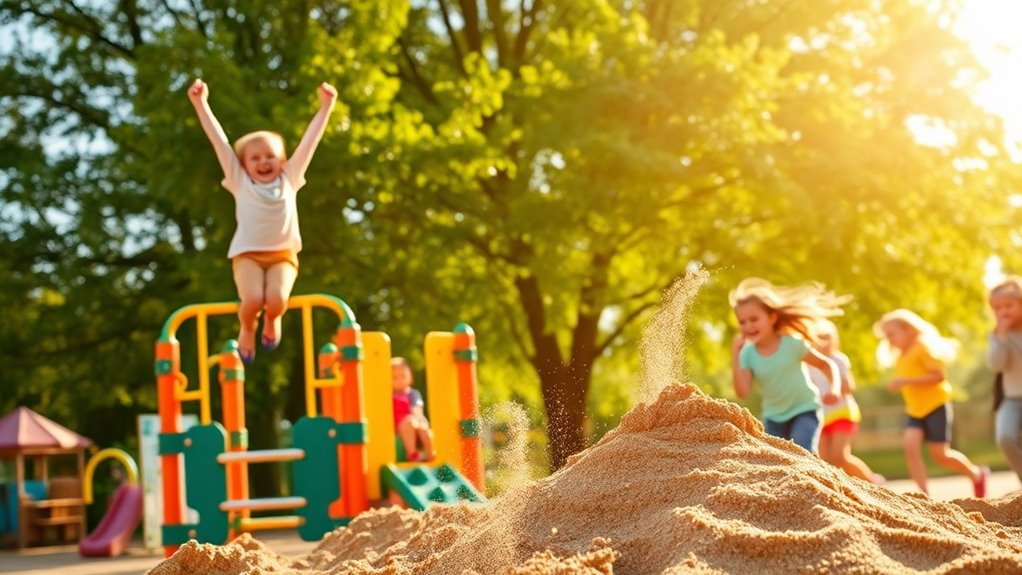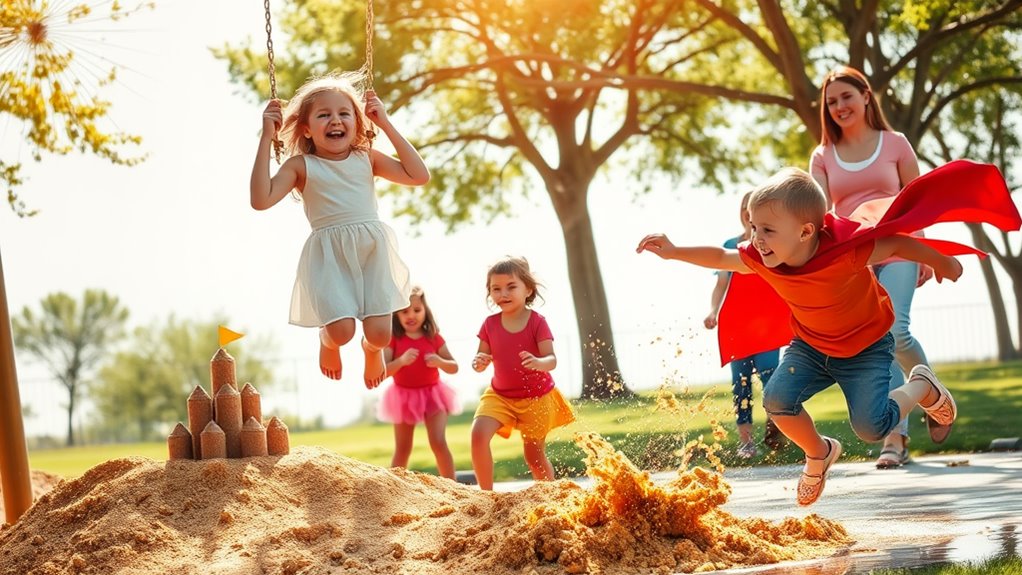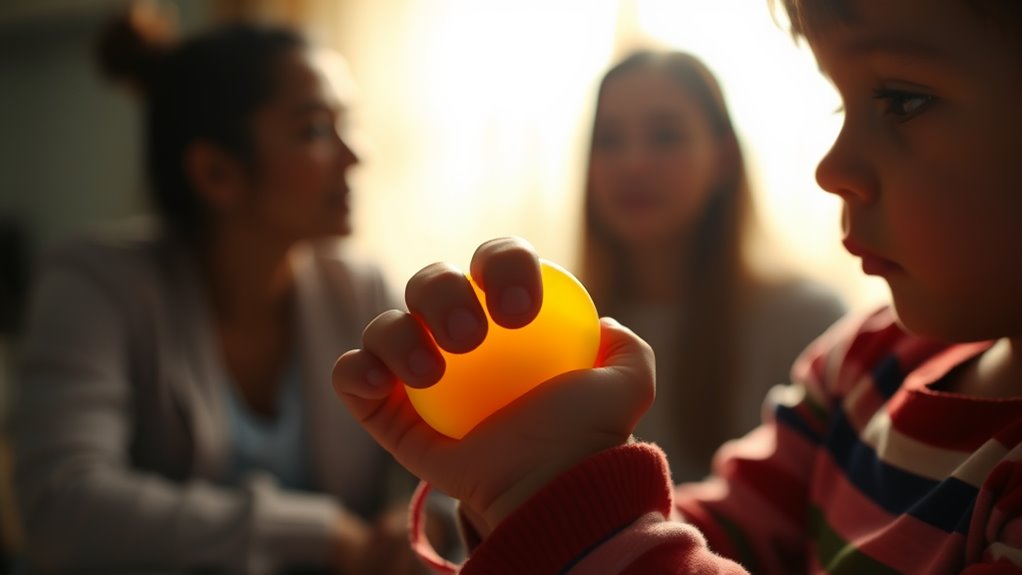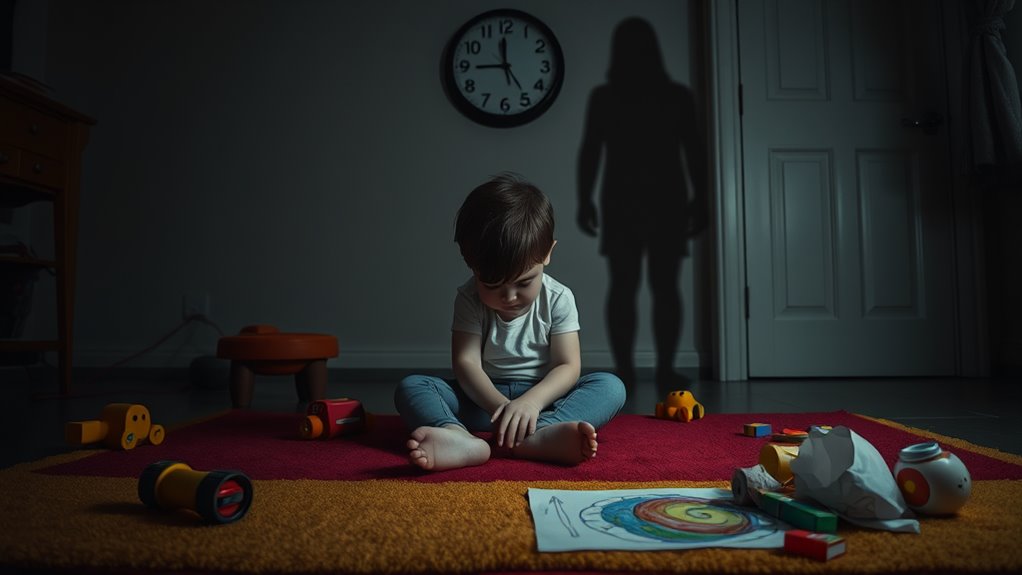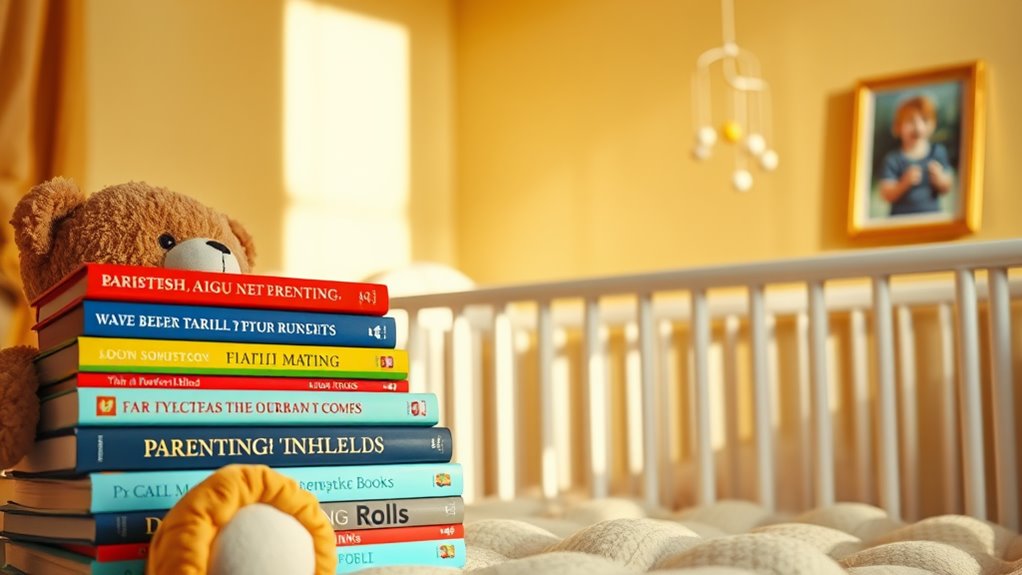Why Play Matters More Than Homework for Young Kids
Play matters more than homework for young kids because it’s crucial for their overall development. Through play, you’re allowing your child to explore their imagination and enhance their creativity. It also helps them develop vital social skills like teamwork and communication. Moreover, play nurtures emotional growth by teaching them how to manage feelings and resolve conflicts. While homework can feel important, it often lacks the engagement that play provides. By prioritizing play, you’re setting your child up for a future full of learning and adaptability. Discovering more about these benefits can help you create the best environment for your child.
Key Takeaways
- Play is foundational for young children’s development, fostering creativity and imagination, which are critical for learning.
- Engaging in play enhances cognitive skills, encouraging problem-solving and critical thinking through hands-on exploration.
- Social skills are developed through play, teaching teamwork, negotiation, and emotional intelligence in peer interactions.
- Play supports emotional growth by providing a safe space for children to navigate feelings and develop coping mechanisms.
- A play-friendly environment promotes active engagement and exploration, which is often more beneficial than traditional homework for young learners.
The Importance of Play
Play is essential for young kids, acting as a vital foundation for their development. It offers them the chance to engage in imaginative play, where they can explore different roles and scenarios. In this space, they’re not just having fun; they’re learning to express themselves and think creatively.
When you watch your child transform a cardboard box into a spaceship, you see the magic of their imagination at work.
Cooperative games are another crucial aspect of play. These games encourage kids to work together, fostering social skills and teaching them the importance of teamwork.
When your child shares toys or strategizes with friends, they’re not just playing; they’re building relationships and learning how to communicate effectively. Through these interactions, they develop empathy and understand different perspectives.
Cognitive Benefits of Play
Engagement in playful activities significantly enhances cognitive development in young children. When kids play, they’re not just having fun; they’re also honing vital skills that contribute to their overall growth. Through imaginative play, children explore different scenarios, which fosters their imaginative thinking. This kind of exploration allows them to think outside the box, creating new ideas and perspectives.
Moreover, playful activities often present challenges that require problem solving skills. Whether they’re building a fort or figuring out how to complete a puzzle, kids learn to approach issues creatively. They experiment with different solutions, testing hypotheses and adapting their strategies as they go along. This trial-and-error process is crucial for developing critical thinking abilities.
As children engage in various types of play, they also learn to focus their attention and manage their time, which further supports cognitive development. By integrating play into their daily routines, parents and educators can help kids strengthen their cognitive skills without the pressure of traditional learning methods.
Ultimately, prioritizing play allows children to thrive academically and socially, laying a strong foundation for future learning.
Social Skills Development
Interacting with peers during playtime cultivates essential social skills in young children. When kids engage in play, they learn to work together, sharing ideas and resources, which fosters teamwork skills. Whether they’re building a fort or playing a game, they’re practicing collaboration, negotiation, and compromise. These experiences teach them how to listen to others, express their thoughts, and understand different perspectives.
Playtime also enhances their communication abilities. Children learn to articulate their needs and feelings, which is crucial for effective interactions. Through role-playing or imaginative scenarios, they experiment with language and social cues, making it easier to navigate real-life conversations. This practice can lead to greater confidence in expressing themselves.
Moreover, play encourages kids to resolve conflicts independently. When disagreements arise, they must figure out how to reach a solution, honing their problem-solving skills and emotional intelligence. These interactions contribute to a child’s understanding of social norms and acceptable behavior.
In essence, play serves as a vital platform for developing teamwork skills and communication abilities, laying a strong foundation for future relationships and social engagements. By prioritizing play, you’re giving your child the tools they need to thrive socially.
Emotional Growth Through Play
Many experts agree that play is essential for emotional growth in young children. Through play, kids learn to navigate their feelings and develop emotional regulation. When they engage in imaginative expression, whether it’s pretending to be a superhero or creating a new world with blocks, they’re experimenting with different emotions in a safe environment. This creative process allows them to express joy, frustration, and even fear, helping them understand these feelings better.
As your child plays, they’re also learning how to cope with challenges and setbacks. For instance, when a tower of blocks falls, it’s not just about the blocks; it’s about how they respond to disappointment. Learning to manage these emotions during play sets the foundation for handling real-life situations later on.
Moreover, play encourages empathy as children often take on different roles and perspectives, fostering an understanding of others’ feelings.
Play vs. Traditional Homework
The debate between play and traditional homework has gained significant attention in recent years, as educators and parents alike reconsider the best approaches for young children’s learning.
While homework has long been a staple in education, many are now questioning its effectiveness for younger kids. You might find that playtime routines offer a more enriching experience than traditional assignments.
Play isn’t just fun; it fosters creativity, problem-solving, and social skills. Homework alternatives, like engaging in hands-on activities or interactive games, often yield better results than worksheets.
These alternatives can spark a child’s natural curiosity and help them learn in a way that feels less like a chore.
Think about it—when kids are allowed to explore, experiment, and engage with their environment, they’re developing critical thinking skills that simply can’t be achieved through rote memorization.
Creating a Play-Friendly Environment
To fully embrace the benefits of play, creating a play-friendly environment is key.
You’ll want to focus on both indoor and outdoor spaces that encourage exploration and imaginative play. Start by decluttering areas where your kids spend time; this helps them feel more at ease and free to engage in activities without distractions.
For outdoor spaces, consider adding elements like a sandbox, climbing structures, or a garden. These features not only promote physical activity but also inspire creativity.
Encourage your kids to invent games, build forts, or create obstacle courses using what’s available in their environment.
Indoors, set up cozy corners with cushions, blankets, and art supplies to foster imaginative play.
Designate areas for various activities like reading, crafting, or role-playing. Make sure to rotate toys and materials regularly to keep their interest alive and stimulate their imagination.
Frequently Asked Questions
How Can Parents Encourage Play at Home?
To encourage play at home, you can create creative environments filled with diverse play materials. Let your kids explore freely, fostering their imagination and problem-solving skills while ensuring they enjoy learning through play.
What Types of Play Are Most Beneficial for Young Kids?
For young kids, imaginative play and sensory exploration are incredibly beneficial. They stimulate creativity, enhance problem-solving skills, and promote social interaction. Encouraging activities like role-playing or hands-on experiments can make a significant difference in their development.
How Does Play Impact Physical Development in Children?
Did you know that kids who engage in regular play improve their gross motor skills by 30%? Through play, you’ll notice their fine motor skills develop too, fostering coordination and enhancing overall physical development.
Are There Any Downsides to Too Much Unstructured Play?
Yes, too much unstructured play can lead to risks. You should consider balance strategies to ensure children develop essential skills while staying safe. Implementing risk assessment helps create a healthy play environment for their growth.
How Can Teachers Incorporate Play Into the Classroom Effectively?
Imagine a classroom buzzing with laughter, where playful learning thrives. You can incorporate classroom games that spark creativity and collaboration, allowing students to explore concepts through fun activities, making lessons memorable and engaging for everyone involved.

